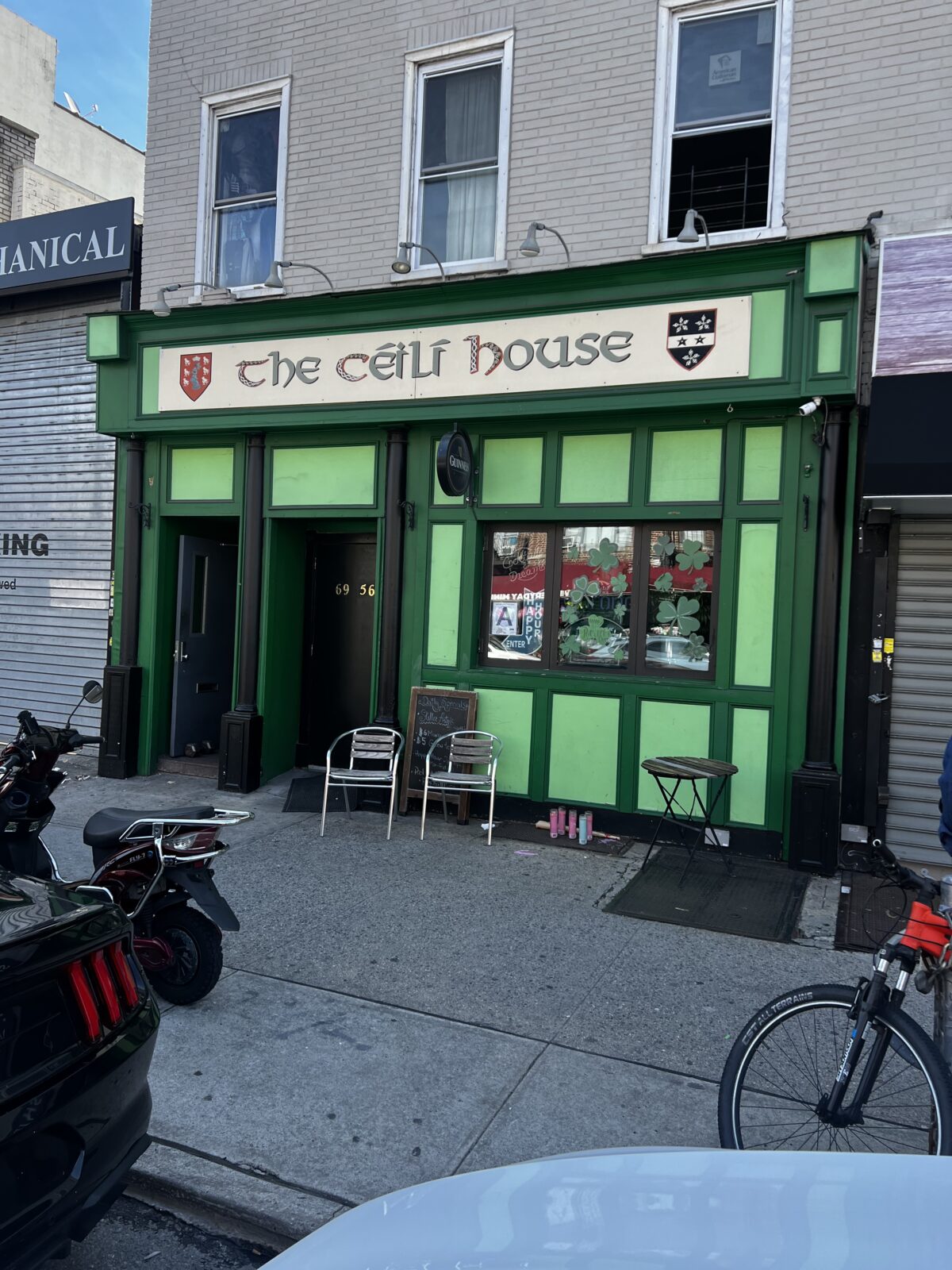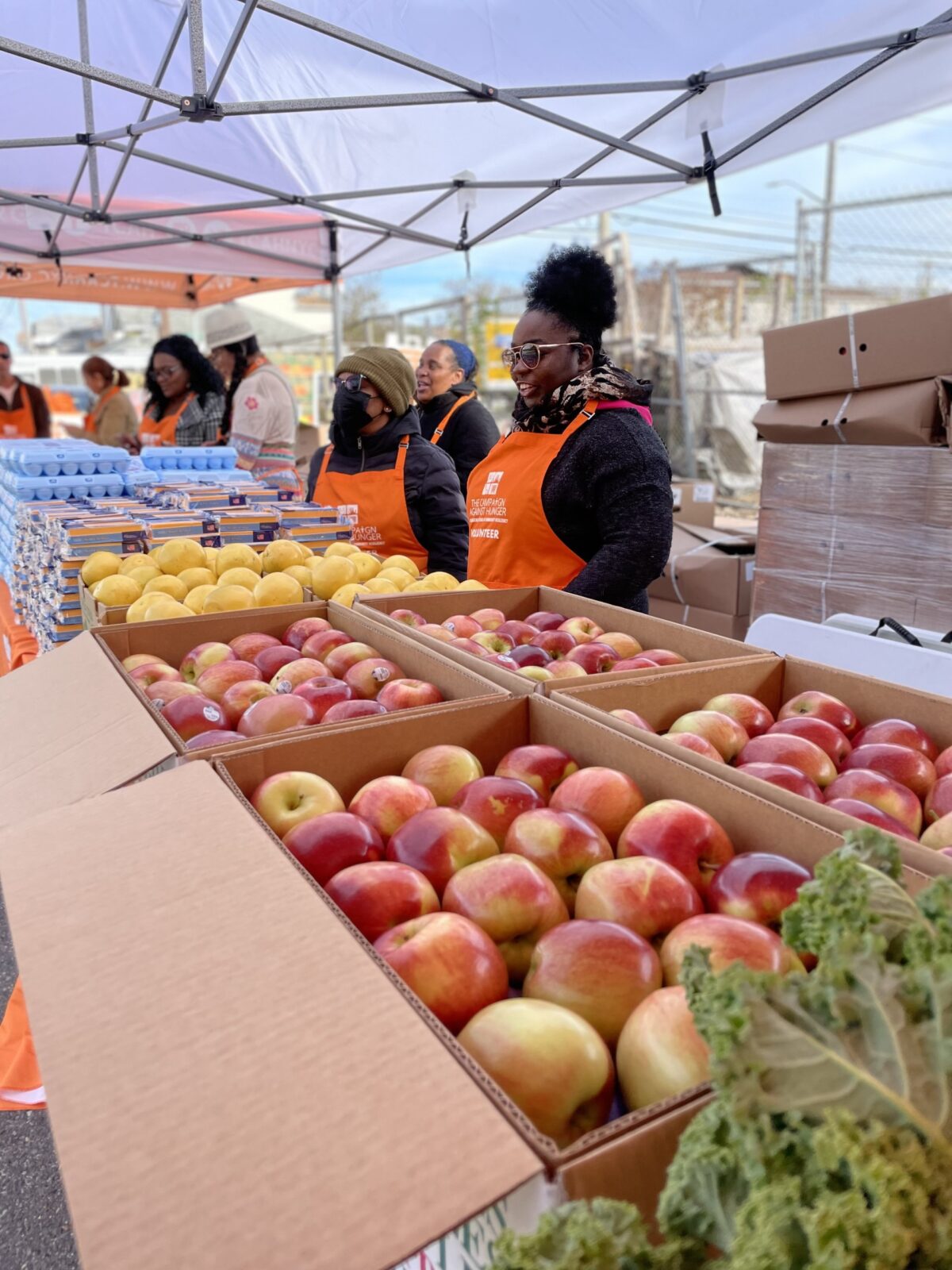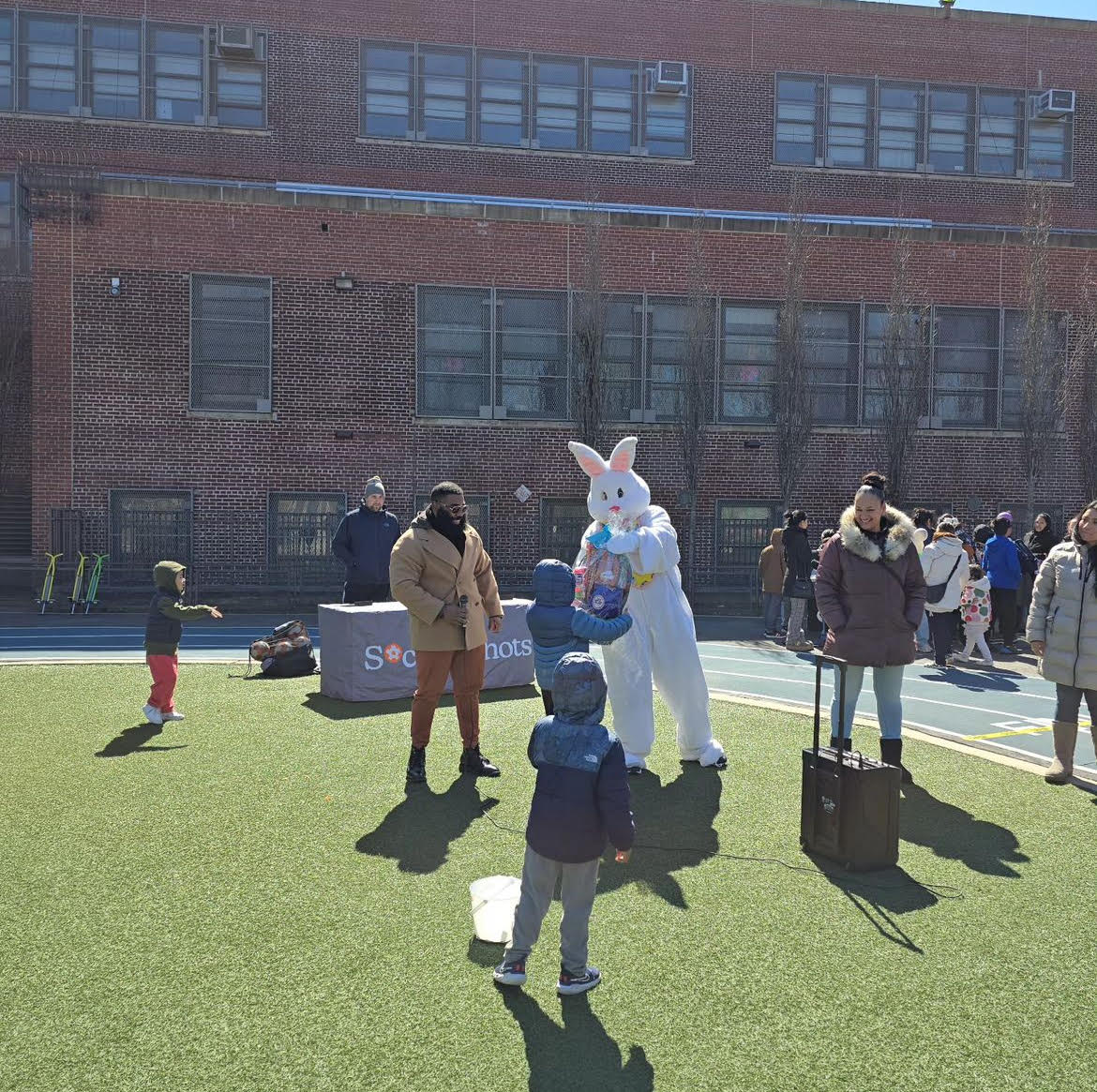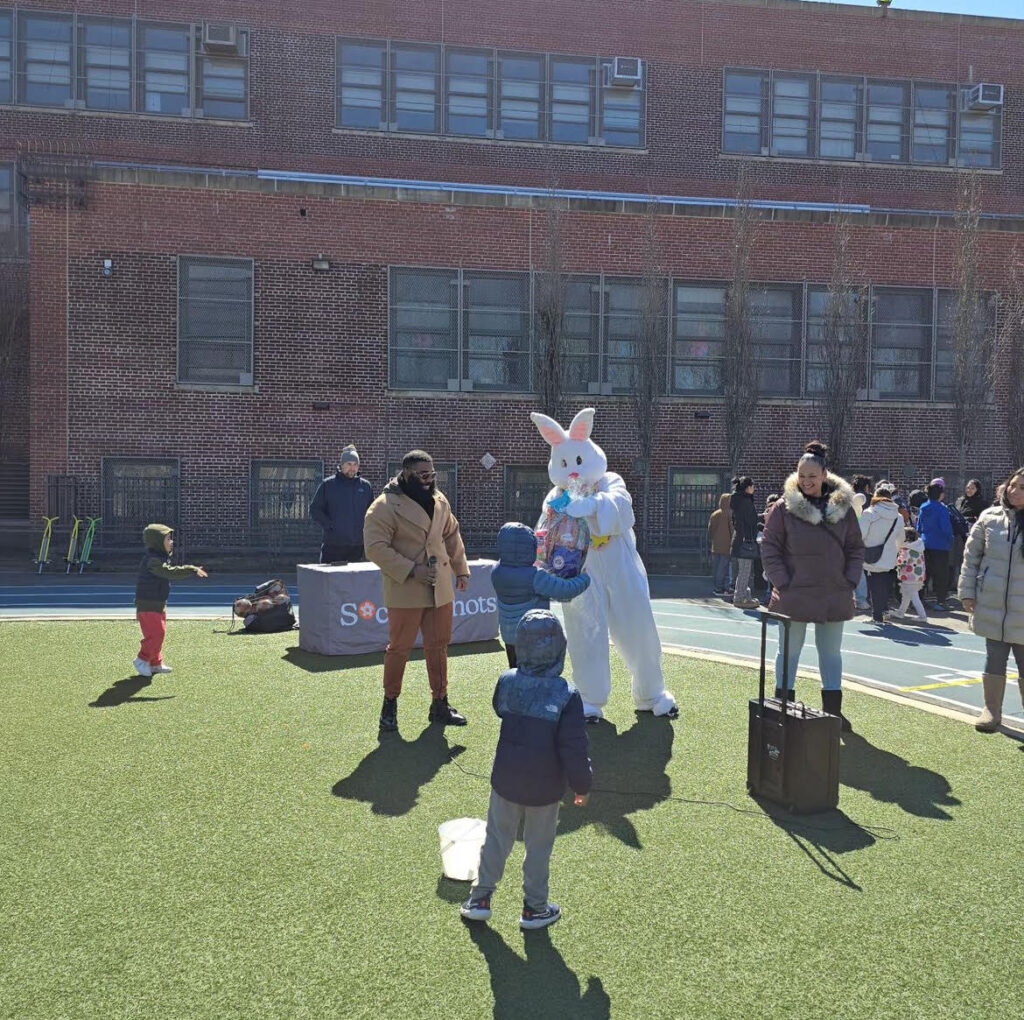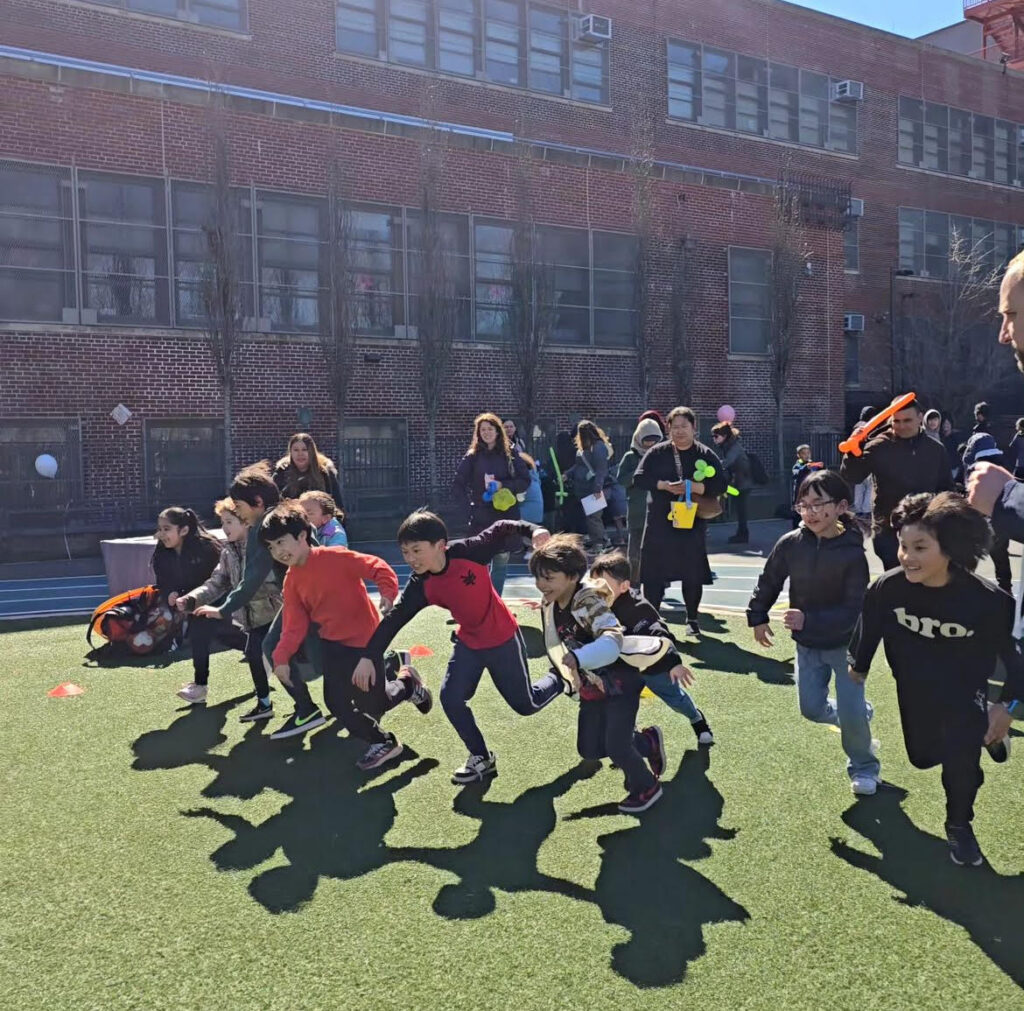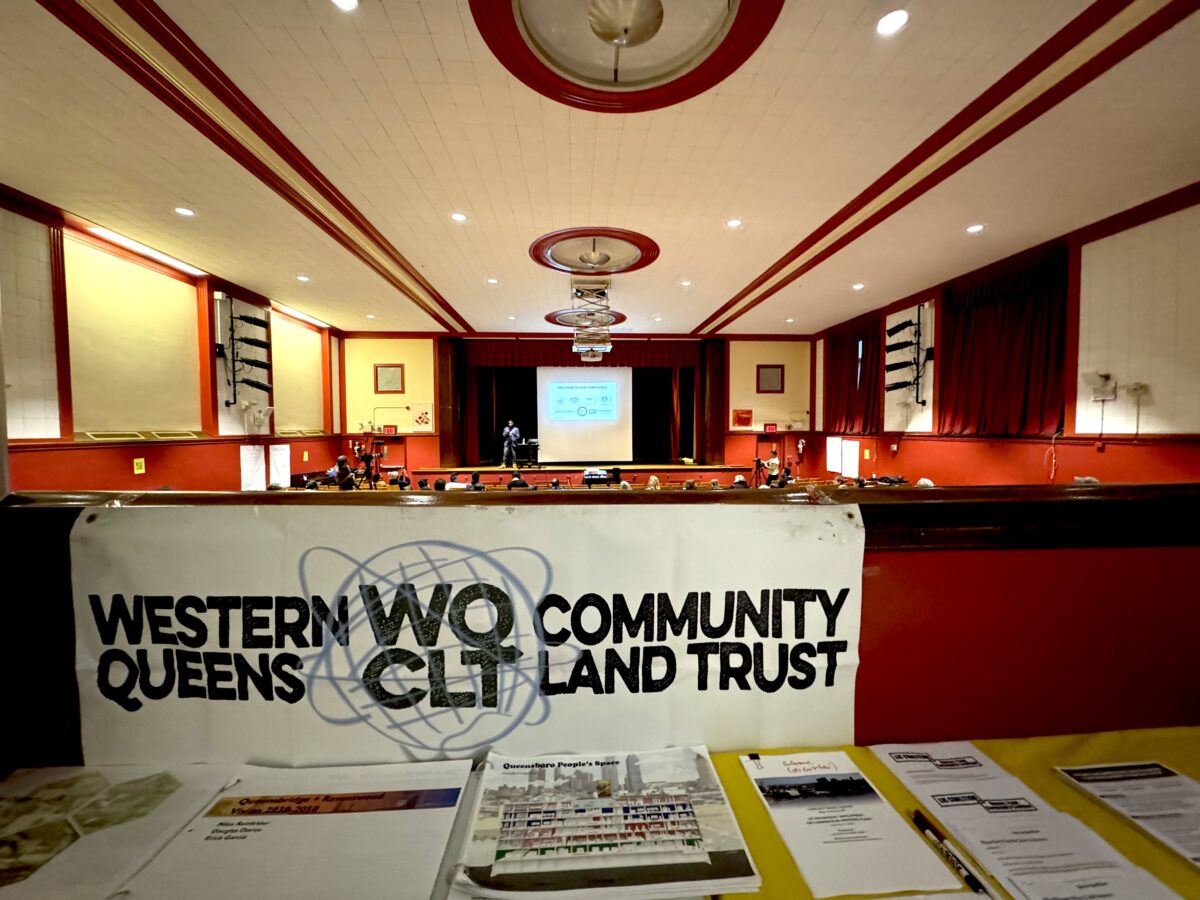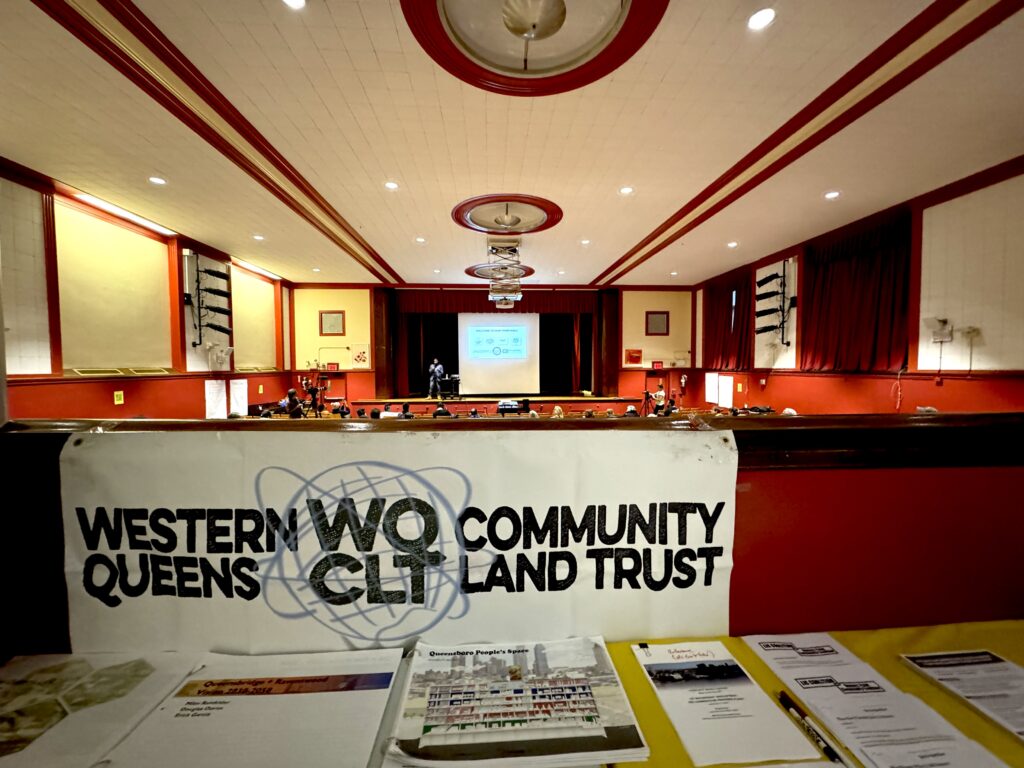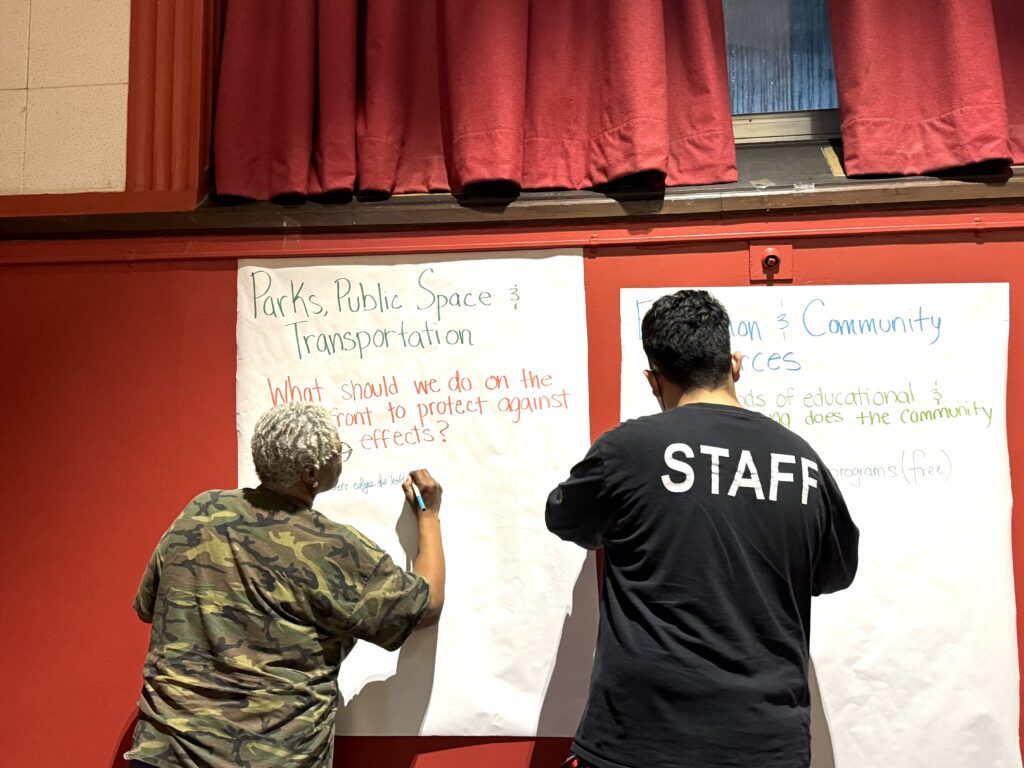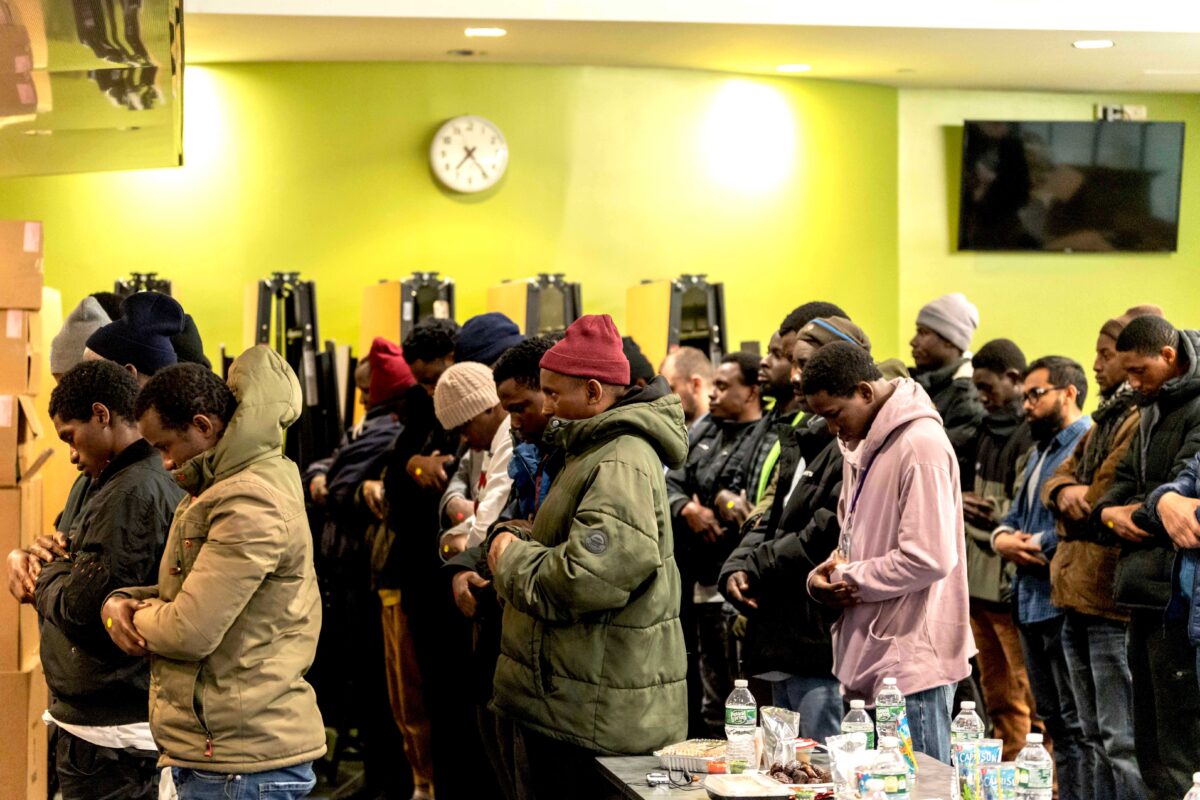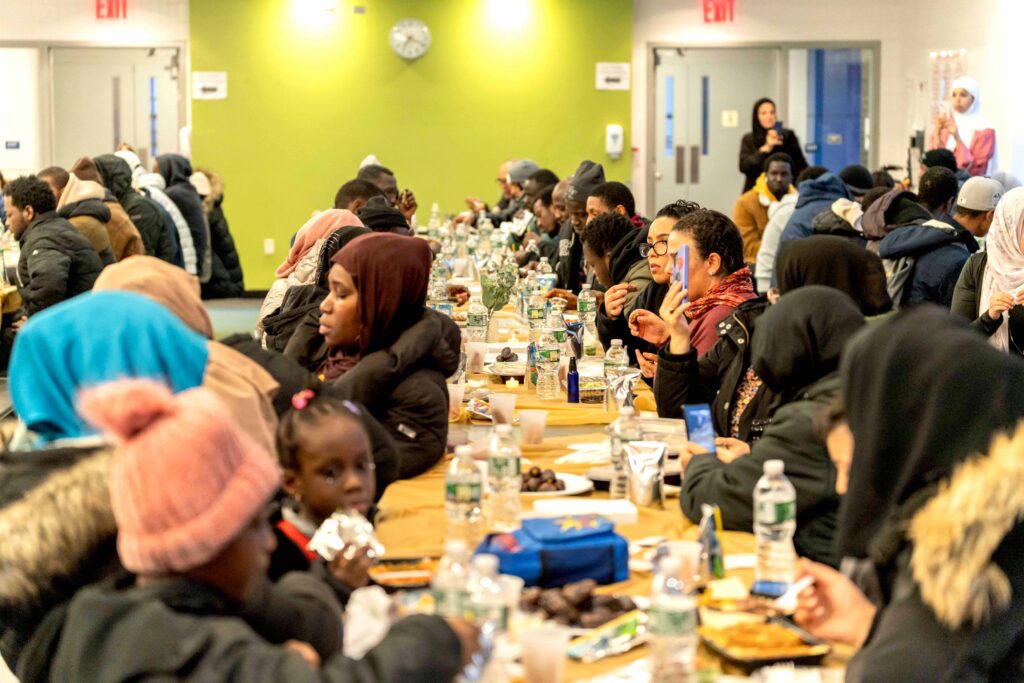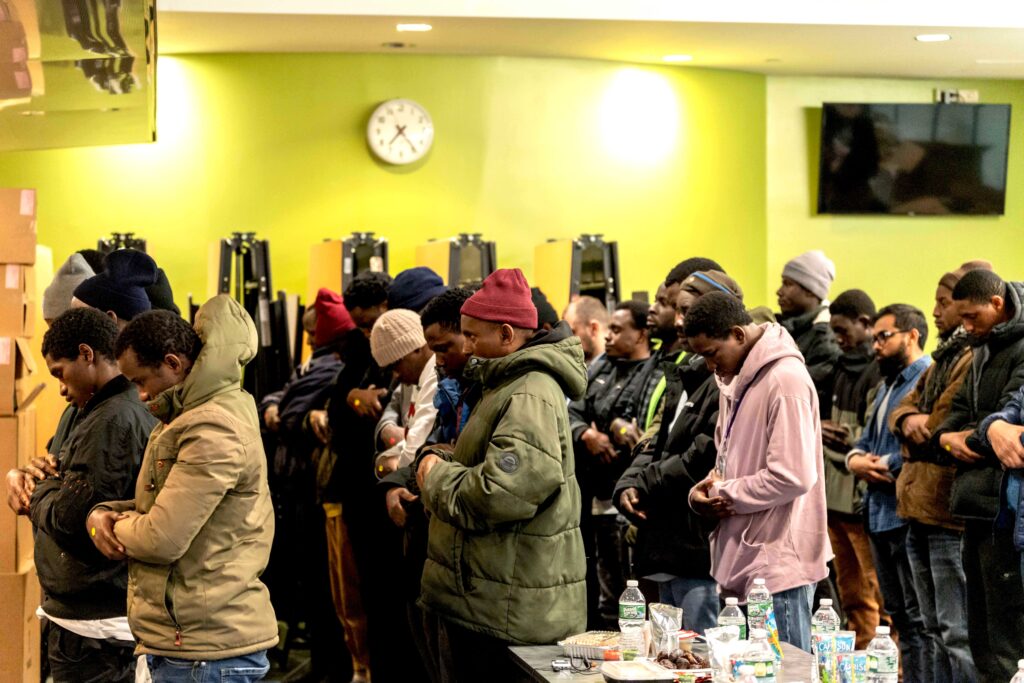By Celia Bernhardt | cbernhardt@queensledger.com
A 19-year-old Bengali Ozone Park resident named Win Rozario called 911 on Wednesday, March 27 seeking help while suffering from mental distress. He was fatally shot by the police officers who responded to the call.
The NYPD alleges that Rozario threatened those police officers with scissors.
Rozario’s death has sparked mourning and urgent calls for change across the Bengali and Bangladeshi community in Queens.
The NYPD’s description of the circumstances that led to the 19-year-old’s fatal shooting have a key difference with the recollection provided by Rozario’s 17-year-old brother, Ushto. NYPD Chief of Patrol John Chell, at a press conference, said that officers were attempting to take Rozario “into custody to get him help” when he began to approach them wielding a pair of scissors. The officers deployed Tasers in response before Rozario’s mother “came to the aid of her son in order to help him,” according to Chell, and “accidentally knocked the Tasers out of his body.”
What happened next is where accounts differ.
In an interview with the New York Times, Ushto Rozario said that his mother was still hugging and effectively restraining Rozario when the officers shot him. Ushto told the Times that Rozario “couldn’t really do anything” while his mother was holding him, and said that the shooting was unnecessary. Chell, in contrast, said that Rozario “came at” the officers again with scissors. “They had no choice but to defend themselves, discharging their firearms,” Chell said at the press conference.
Ushto said that officers shot Rozario six times; the NYPD has not made any statements regarding the number of shots.
“Everything I described to you is on a body-worn camera,” Chell said.
As of Wednesday, the NYPD has not yet released the body camera footage.
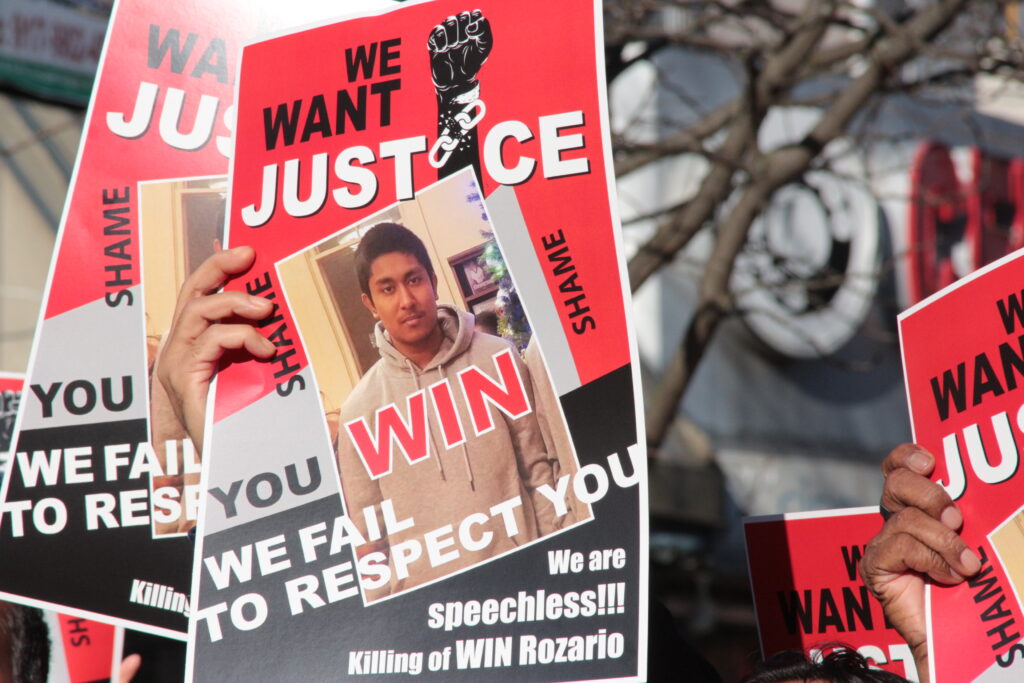
Signs from a vigil for Win Rozario.
The New York Attorney General’s Office of Special Investigations announced on Tuesday that it had opened an investigation into Rozario’s death.
“OSI assesses every incident reported to it where a police officer or a peace officer, including a corrections officer, may have caused the death of a person by an act or omission,” the Attorney General’s website stated. “If OSI’s assessment indicates an officer may have caused the death, OSI proceeds to conduct a full investigation of the incident.”
Rozario’s death has reignited calls from some elected officials and community organizations for a change in how the city responds to mental health emergencies.
“Win Rozario made a call for help and it cost him his life,” Council Member Lynn Schulman wrote in a public statement. “Our system failed him.”
Schulman highlighted the Behavioral Health Emergency Assistance Response Division Program (commonly called B-Heard) as one of multiple “life saving initiatives that enable mental health clinicans to respond to emergency mental health situations,” rather than police officers, arguing that the program is in need of additional funding in order to prevent fatal situations like Rozario’s.
Cityline Ozone Park Civilian Patrol, a community volunteer organization, released a statement which also included calls for additional B-HEARD funding.
“We need a stronger partnership between law enforcement, mental health professionals, and community organizations,” COPCP’s statement read.
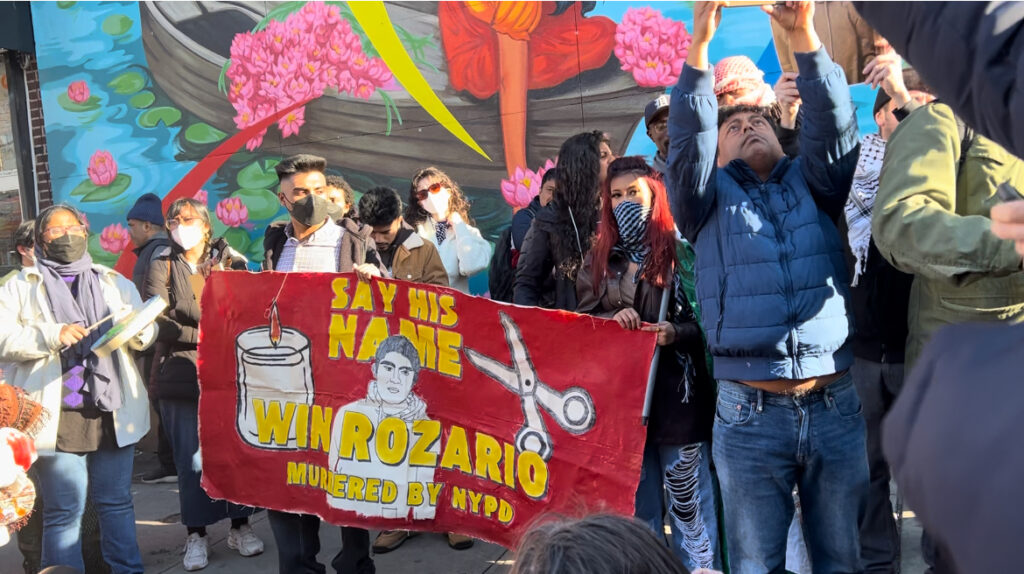
Lal Morich led one of two vigils in Diversity Plaza.
On Friday at 5 p.m., two competing vigils took place in Jackson Heights’ Diversity Plaza.
The event was spearheaded by Lal Morich, an organization which describes itself on Instagram as “a Bangladeshi anti imperialist diaspora org in support of the New Democratic Movement in Bangladesh.” The group’s flier for the vigil spread on social media platforms.
Two groups clustered at the event. One, led by Lal Morich organizers, carried a hand-painted banner depicting Rozario’s image, a candle, and a pair of scissors behind the words “Say His Name: Win Rozario.” The other group’s members carried a printed banner for the Probashi Bengali Christian Association, a social organization serving Bengali Christians in the tri-state region. They held up posters of Rozario with the words “we want justice” and arrived with their own sound system.
“I left my country to have a better life here,” one speaker with the PBCA said to the crowd. “We all are very angry, very sad. We just want justice. We’re not here to criticize against anyone. Who knows? I don’t want… my family to be the next one, you don’t want your family to be the next one.”
Another speaker, Pastor James Roy of the United Bengali Lutheran Church, encouraged the crowd to pray for the Rozario family.
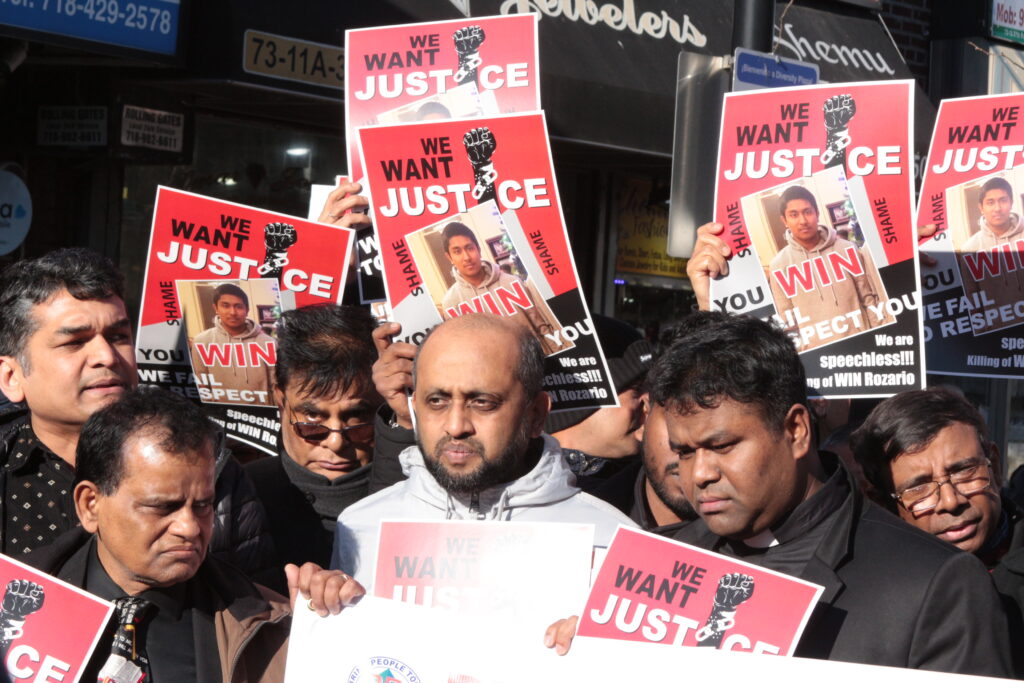
PBCA at the vigil.
The PBCA’s cluster delivered speeches for approximately twenty minutes before Lal Morich activists began booing when one speaker described the NYPD, as an organization, as “brave.”
“He got killed by the police! He got killed by the NYPD!” one organizer shouted at the PBCA.
Both groups alternately chanted “we want justice” at each other. Lal Morich-led attendees then began drumming and leading new chants before delivering their own speeches. PCBA members continued speaking, the two groups battling for volume beside each other.
“[The NYPD doesn’t] care about mental health. Win needed mental health help. He got brutalized. He got shot and killed by cowards,” one Lal Morich organizer said in a speech. “They do this to countless other teenagers, countless other elders, young people. We don’t stand for this. We cannot tell lies to our community, we cannot tell lies to the next generation that the NYPD are brave.”
The vigil continued for over an hour after that as the crowd mourned Rozario.
Pastor Roy later told the Ledger that Rozario and his family were parishoners of his at the United Bengali Lutheran Church. 33-year-old Steve Roy, a member of the church, said the same.
“Since they’ve been here, they’ve been going to our church. I know their family, I know him, his brother, mother, everybody,” Roy said.
“NYPD’s been doing this for decades,” Roy continued. “Killing people because they feel like it, or maybe they’re scared. I don’t know if a scissor warrants six bullets in somebody. This is not the first time — this happens everywhere, in every state…It comes from the infrastructure, right? If you have a corrupt infrastructure, this is the reality of your system.”
As for the tension between the groups at the Plaza, Roy said that the entire ordeal was “not the perfect response” to Rozario’s death.
“There should’ve been a vigil that was orchestrated by the people who are intimately close with the family,” he said.
A Lal Morich organizer declined to speak with the Ledger.
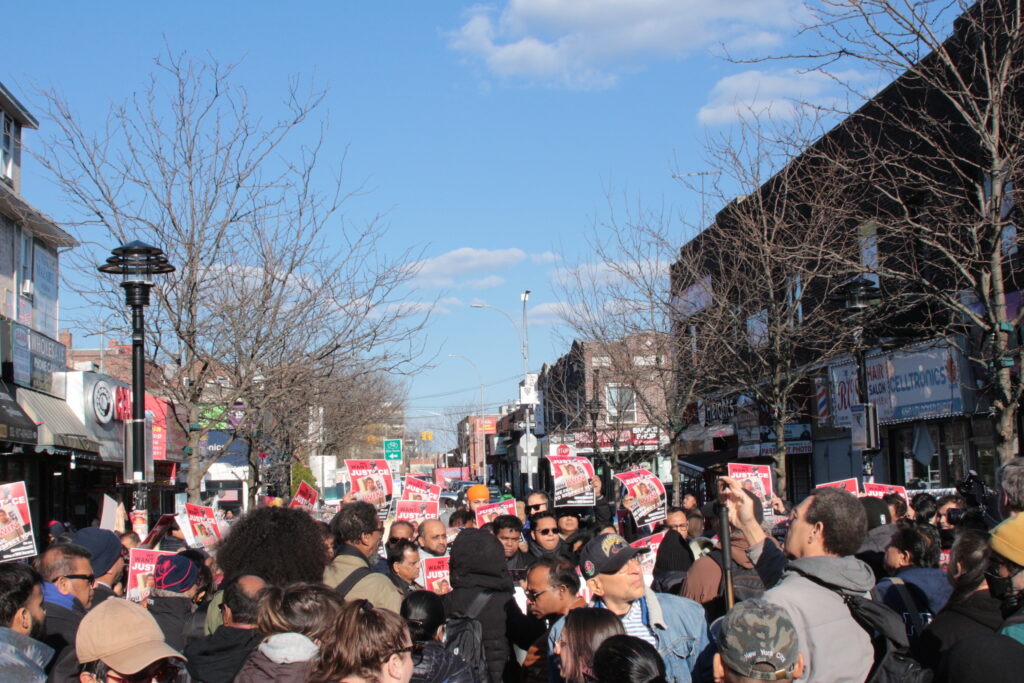
Attendees of both vigils mourned Rozario’s passing.


